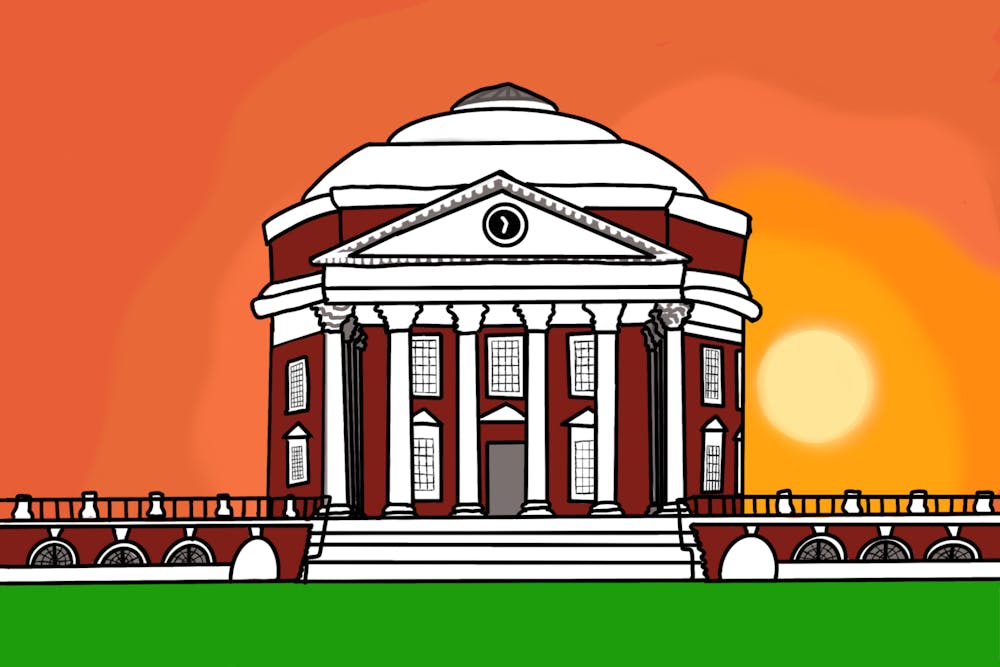Earlier this week, interim University President Paul Mahoney greeted first-years at their convocation ceremony, marking his first formal public appearance. Mahoney and other speakers imparted wisdom to the new class of first-years, giving them advice about how best to navigate these four years. But looking back at the past summer — one of troubling developments at the University — the advice they imparted is not only relevant to students. Rather, it is advice that our entire community, including University leadership themselves, would benefit from. So as we begin this new year together, let us walk through the valuable pointers that can best ensure our continued strength as a community.
Form genuine relationships with your peers
Committed and collaborative relationships are at the heart of the institution which new first-years have entered — from the historic principle of student self-governance to the very notion of an Academical Village, our University has always centered around an active and authentic community. Yet, more and more, the University’s Board has denigrated the autonomy of these relationships. It does not transparently or sincerely engage with peers at the University, from student self-governed organizations to the Faculty Senate. Individuals and groups that were previously given seats at the table have been left largely shut out from these discussions and shut down from holding real influence on their own community.
With three top positions — the president, provost and CEO of U.Va. Health — being occupied by interim individuals fresh to their roles, there is an opportunity for restorative changes. To do so requires realizing that the intended transparency of town halls and informative resources is not enough to repair the lack of trust University leadership now faces. New administrators must ensure that the principle of shared governance is tangibly reinvigorated at our University. And while these administrators will hopefully support shared governance, all students must remember that they also play a role in creating and maintaining shared governance.
Get to know your way around Grounds
Recent political events have viscerally affected University life in a personal manner, and have placed our institution in a vastly different landscape than that which first-years applied to last school year. Administrative changes to University policy — whether they are guidance with anti-discrimination law, the dissolution of diversity, equity and inclusion or federal research funding cuts — will have a critical impact on the student experience here. If the Board should like to be a body that truly cares about the realities of its constituents, it must observe the consequences of its resolutions, and react with empathy and transparency to these circumstances.
This insecurity felt by many in our community also provides an opportunity for our University’s new administrators to prove that they are understanding and attentive to our circumstances. Collaborating with all groups within the University community, rather than viewing them as obstacles, would aid in ameliorating the perception of apathy which many have attributed to University leadership. Whilst giving these new administrators an opportunity to display empathy, students also must play a role in this governance — it is vital to learn more about the University’s political landscape, and insert yourselves as vocal members towards desired change.
Learn from your mistakes
A lesson which colors the first-year experience is that of learning from inevitable mistakes. This is also a principle which the University more broadly must embrace — and soon. The rifts of the summer will continue to deepen unless the new administration takes careful and actionable governance measures to restore trust with the University community. In this vein, University leadership should be very conscientious of the gamut of no-confidence votes and react with empathy and action, unlike the unilateral actions of the Board. Similarly, students must also ensure that the actions of the Board do not dissuade them from active participation across Grounds, but instead only strengthen their desire to advocate for change.
With these recommendations, we wish the University a great and good academic year — a year which will take significant administrative repair to heal this institution after some of its darkest hours.
The Cavalier Daily Editorial Board is composed of the Executive Editor, the Editor-in-Chief, the two Opinion Editors, two Senior Associates and an Opinion Columnist. The board can be reached at eb@cavalierdaily.com.







